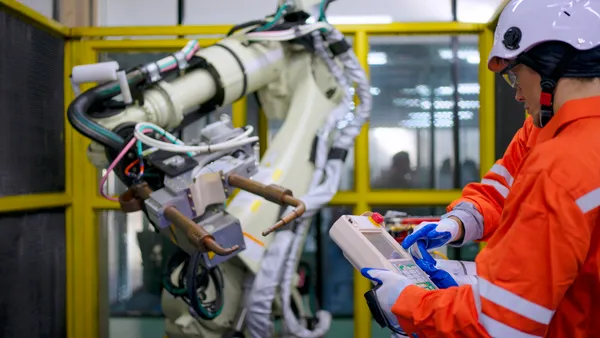Dive Brief:
- A survey from the Institute for Corporate Productivity showed that half of the 665 employers polled harbor "talent-hoarding" managers, the Wall Street Journal reports. Among lower-performing employers in the survey, 74% have talent hoarders.
- Managers sometimes talent hoard by not promoting or transferring their top performers to keep from losing them, says the WSJ. The survey concluded that talent hoarding is bad for business, since it blocks both career development and business growth.
- More companies are now targeting talent hoarding to reverse the serious skills shortage confronting employers.
Dive Insight:
HR can intervene in talent hoarding to ensure that managers aren’t standing in the way of employees’ advancement. In general, it's never a good idea for superiors to meddle excessively in the career paths of their top employees, for any reason.
Autonomy begets trust, and no leader can do their job successfully by scuttling that trust. It's important to provide guidance and foster employee development, but that doesn't entail micro-management. Candidates accept offers with the expectation, and sometimes the promise, of career mobility. Research shows workers aren't too happy when expectations differ from reality.
On the other side of the coin, HR leaders have retention goals to meet and positions to fill, a growing challenge given stories of increased job hopping in today's labor market. But obstruction is not the solution. Instead, stand by your company values and emphasize them during the recruitment process. Cultivate a culture of trust and recognition; your employees will appreciate it.
This is the role your managers should actually be playing. After all, that's why middle managers are so crucial to organizational success. Their buy-in to the company's mission, goals and process has a direct impact on employees. If you value talent and career development, but not in a way that holds top performers back in their professional lives, instill this in your managerial staff.













